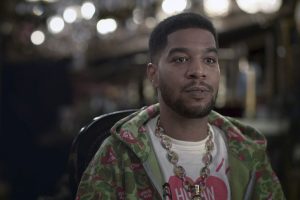Event gives students 1.4 billion reasons to end poverty
November 16, 2010
How would you spend $1.25? Buying a bottle of water from a vending machine can cost $1.50—leaving you parched with only $1.25. For many, thinking of what to buy with only $1.25 is quite difficult because many of the things we value as a society cost an amount greater than $1.25. Still, what if you had only $1.25 to pay for all of your daily expenses? With less than $1.25 to spend each day the long contemplation of how to spend the money is eliminated for the answer is simple: buy food or water in order to survive.
There are 1.4 billion people in the world living in extreme poverty, meaning 1.4 billion people living on less than $1.25 a day. On Nov. 3, the Center for Campus Ministries, the Iona College Honors Program, and the Peace and Social Justice Program co-sponsored a screening of “1.4 Billion Reasons,” a movie presentation produced by the Global Poverty Project that focuses on addressing five questions: What is extreme poverty? Can we do anything about it? What are the barriers to ending extreme poverty? Why should we care? What can I do?
The Global Poverty Project was co-founded by Hugh Evans and is an Australian based organization that is now finding its roots in the United States. “The Global Poverty Project and ‘1.4 Billion Reasons’ are about eradicating extreme poverty by raising awareness of what it is and what we can do to fix it,” said sophomore Campus Minister Rachel Paquin, who helped organize the event.
“Poverty is a huge issue in the world. As a whole, we just accept poverty as a truth in this world, that there is no way to escape it. People will always be poor, and there is nothing that can be done about it. This, however, is not true,” Paquin said.
The truth is, as illustrated by the Global Poverty Project and “1.4 Billion Reasons,” that poverty can be eliminated in our lifetime and all that it requires is dedication and education. Addressing the five focal questions, the “1.4 Billion Reasons” presentation educated the audience of what extreme poverty actually is and how the world can succeed in making extreme poverty a thing of the past.
As previously stated, extreme poverty is defined as living on less than $1.25 a day. To put this in perspective, $1.25 per day can make about two basic meals such as bowls of rice. The entire $1.25 is not spent in the two meals, however, there is ten cents left over, but the remaining ten cents is used to pay for any other accrued expenses—clothing, health care, etc. There are 1.4 billion people living in extreme poverty (25% of the world), but there is something that can be done to fix this dire situation.
Aiding the world’s most impoverished countries is the key to ending world poverty. “The Global Poverty Project shows that it is possible to eradicate extreme poverty since there is already enough money, food, and resources in the world to do so,” Paquin said.
Resources given by the world’s richest countries, such as the United States and the United Kingdom, are invested into education and infrastructure.
Education of the world’s children is the number one factor in migrating out of extreme poverty. It is through education that the door of opportunity opens for even the poorest of children. Over the past thirty years, the percentage of poverty in the world has dropped from 52% to 25%, so it is not a stretch to hope that the percentage will drop to zero in the next thirty years.
Although there are barriers to ending poverty, such as corruption and global trade, these barriers can be easily overcome. Poverty is not something to overlook because we all have the power to enact change.
“I brought this presentation to Iona because it offers a powerful message. It provides that catalyst to create change. Why should Iona be interested and involved with this? Why should anyone be involved with this? Because it is our world. We are the next generation to inherit this world, and it is in great need,” said Paquin.
As British abolitionist, William Wilberforce said in regards to the horrors of slavery, “You may choose to look the other way, but you can never again say that you did not know.” Iona students now have seen the horrors of extreme poverty and know its consequences. Hopefully they can help to end extreme poverty and change the world for the better.







